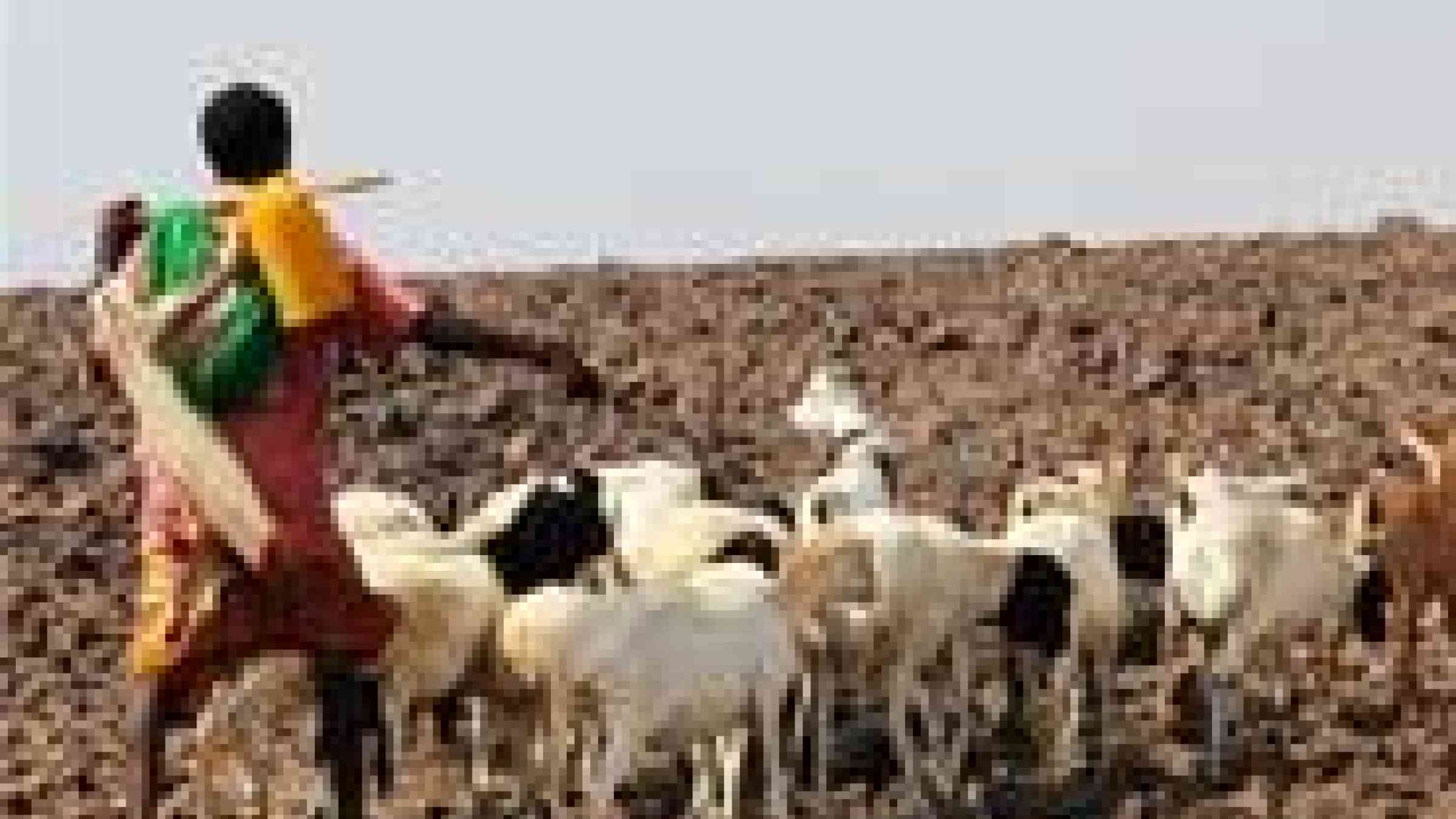
Isiolo - Inadequate access to information, such as weather forecasts, has hampered Kenyan pastoralists' ability to respond and adapt to climate change, experts say.
"Lack of adequate information and focus on emergency responses has left communities exposed to the effects of climate change. More focus must now go towards ensuring that the communities have the ability to withstand the effects of climate change. Building resilience is the way to go," Victor Orindi, climate change advisor in the Ministry of State for the Development of Northern Kenya and Other Arid Lands, told IRIN.
Kenya’s pastoralists face recurrent devastation from droughts, livestock deaths, loss of livelihood and conflict over resources.
Weather forecasts
A climate change adaptation project has been launched in Garbatulla, in the eastern county of Isiolo, which is inhabited mainly by pastoralist communities.
The project, funded through the Climate Adaptation Fund and developed by the International Institute for Environment and Development (IIED) and the Kenya Meteorological Department, will establish a radio station to broadcast weather forecasts in local languages.
"Pastoralist are the most disadvantaged group in Kenya. A majority are illiterate, can't read newspapers and don't understand languages used by all the radio and TV stations… [which] are the same facilities that are used to inform Kenyans about climate change," Mumina Bonaya, community mobilization manager for the NGO Resource Advocacy Programme, told IRIN.
The radio station, known as Badada FM, is expected to reach almost a million people from the Borana, Gabra, Samburu, Somali, Turkana and Rendile communities in northern Kenya. The radio station will focus on giving updates on looming droughts and floods, as well as information on climate change.
The project will additionally build links between pastoralists and researchers, weather experts, policymakers, government officials and aid agencies. It will also map grazing fields and community watering points, and will empower pastoralist communities to better manage and utilize these resources.
"Our county’s climate change resilience project, the first of its kind in Kenya, will mobilize resources, researchers and modern technology. We have changed the approach, and linked the herder down at the wards [villages] with key institutions at national and international level s," Bonaya said.
Through what are known as ward committees, communities can identify initiatives they find promising and request that they be funded. Similar projects are being piloted in five wards in eastern and northern Kenya.
Empowering communities
Jo Abbot, the deputy head of the UK's Department for International Development (DFID) in Kenya, said climate change-related challenges can be managed through the adoption of technology and by keeping communities abreast of weather patterns. But relaying weather forecasts through print and electronic media and television has meant that this information does not reach people like pastoralists. And the information available is often imprecise.
"Our delivery system makes it difficult to reach the end-users. Those who get it demand details such as exact amount of rainfall, onset and cessation, and this cannot be achieved in the predictions," Ayub Shaka, head of the Kenya Meteorological Department, said.
But empowering communities through resilience and early warning programmes improves pastoralists' coping mechanisms, and could work better than funding emergency programmes, experts say.
"It's cheap to prevent [disasters] and empower communities with information... Researchers and donors will both benefit [since] famine, diseases, loss of livestock or source of income, and conflicts are very costly. They affect education, the health sector and development plans," Daoud Tari, head of the Resource Advocacy Programme project, told IRIN.
na/ko/rz